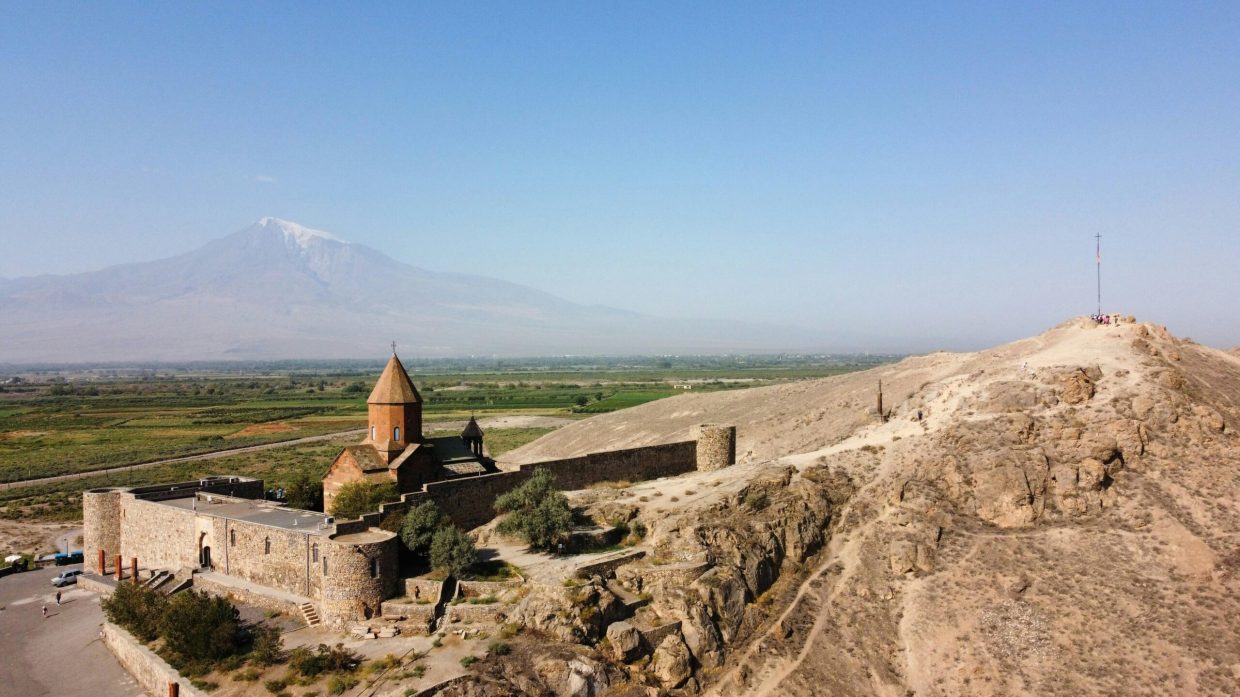Tensions have sharply increased in the Nagorno-Karabakh region as reports of ceasefire violations surge in recent days. Both Armenian and Azerbaijani forces accuse each other of initiating hostile actions, raising concerns over the fragile stability established by previous peace agreements. The renewed clashes threaten to undermine ongoing diplomatic efforts aimed at resolving the long-standing territorial dispute, drawing international attention to the volatile security situation in this strategically significant area.
Table of Contents
- Ceasefire Violations Surge Amid Renewed Tensions in Nagorno-Karabakh
- Humanitarian Impact and Displacement Concerns Escalate in Conflict Zone
- Diplomatic Efforts and Regional Mediation Initiatives Face Renewed Challenges
- Recommendations for Strengthening Monitoring Mechanisms and Fostering Lasting Peace
- Concluding Remarks
Ceasefire Violations Surge Amid Renewed Tensions in Nagorno-Karabakh
Recent reports indicate a marked increase in ceasefire breaches along the Nagorno-Karabakh line of contact, signaling a deteriorating security landscape. Both sides have accused each other of initiating hostilities, with exchanges of heavy artillery fire and small-arms engagements becoming alarmingly frequent. Observers note that the violations not only threaten the fragile peace but also endanger civilian populations residing near the conflict zone, disrupting daily life and exacerbating humanitarian concerns.
Key developments include:
- Multiple instances of artillery shelling and sniper fire reported within a single day.
- Heightened military readiness and troop movements detected by monitoring agencies.
- International calls for restraint and renewed dialogue have so far failed to produce tangible de-escalation.
The escalation underscores the complexities of achieving a lasting resolution in the region. Analysts emphasize the necessity for sustained diplomatic engagement and robust monitoring mechanisms to prevent further deterioration and to protect civilians caught in the crossfire.
Humanitarian Impact and Displacement Concerns Escalate in Conflict Zone
Civilians continue to bear the brunt of the ongoing hostilities, with escalating violence severely disrupting daily life across affected areas. Key infrastructure, including schools and medical facilities, has sustained significant damage, limiting access to essential services and exacerbating humanitarian needs. The rising insecurity has forced thousands to flee their homes, swelling the ranks of internally displaced persons (IDPs) and placing immense strain on local communities and aid agencies.
Humanitarian organizations on the ground report critical shortages in food, clean water, and medical supplies. Urgent challenges facing displaced populations include:
- Overcrowded shelters with inadequate sanitation
- Lack of consistent access to healthcare for both chronic conditions and emergency injuries
- Disrupted education for displaced children
- Heightened risk of communicable diseases due to poor living conditions
Immediate international support and unimpeded delivery of aid remain essential to mitigate the mounting crisis and address the profound human suffering resulting from ongoing clashes.
Diplomatic Efforts and Regional Mediation Initiatives Face Renewed Challenges
The latest surge in hostilities has critically undermined ongoing diplomatic efforts spearheaded by regional powers and international organizations. Despite multiple calls for restraint and dialogue, ceasefire violations persist, eroding trust among the involved parties. The fragile communication channels established through previous mediation initiatives are now under unprecedented strain, complicating attempts to negotiate a durable peace agreement. Key mediators, including the OSCE Minsk Group, are facing significant obstacles in maintaining neutrality and influence amid escalating tensions.
Challenges complicating the mediation landscape include:
- Increased military activity disrupting ceasefire monitoring operations.
- Divergent political stances of external stakeholders with vested interests.
- Limited access for humanitarian agencies exacerbating civilian suffering.
- Fragmented local leadership hindering coherent negotiation channels.
These factors combined have hampered constructive dialogue, reducing prospects for immediate conflict resolution. As violence continues to flare, the regional stability that diplomacy seeks to secure remains precarious, demanding renewed commitment and innovative approaches from all involved actors.
Recommendations for Strengthening Monitoring Mechanisms and Fostering Lasting Peace
To effectively contain and reduce ceasefire violations in Nagorno-Karabakh, it is crucial to enhance the existing monitoring frameworks with the integration of advanced technologies such as satellite imaging, real-time surveillance drones, and automated conflict reporting systems. Empowering neutral third-party observers with unrestricted access and providing them with modern communication tools will increase transparency and accountability on both sides. Additionally, establishing clear protocols for rapid response in the event of violations can prevent minor incidents from escalating into full-scale confrontations.
Long-term peace hinges on sustained diplomatic engagement supported by community-led initiatives that foster mutual understanding. Key strategies include:
- Strengthening cross-border dialogue forums to address grievances and build trust between local populations.
- Implementing joint economic projects that incentivize collaboration and shared prosperity.
- Encouraging cultural exchange programs to break down stereotypes and promote reconciliation.
By combining rigorous monitoring with grassroots peacebuilding efforts, stakeholders can lay the foundation for a durable resolution that respects the rights and security of all parties involved.
Concluding Remarks
The recent escalation of ceasefire violations in the Nagorno-Karabakh region underscores the fragility of the current peace arrangements and the urgent need for renewed diplomatic efforts. As both sides trade accusations and the humanitarian impact deepens, the international community’s role in facilitating dialogue and ensuring adherence to agreements remains crucial. Continued monitoring and engagement will be essential to prevent further deterioration and to pave the way for a sustainable resolution in this longstanding conflict.













